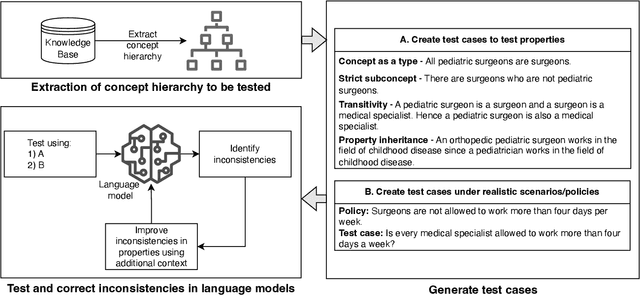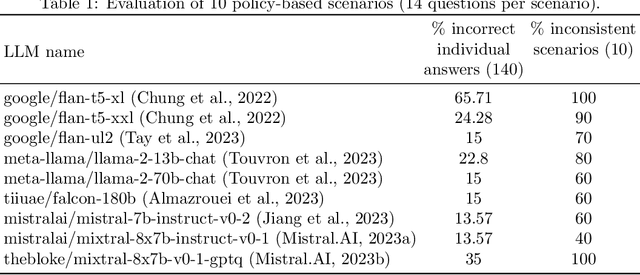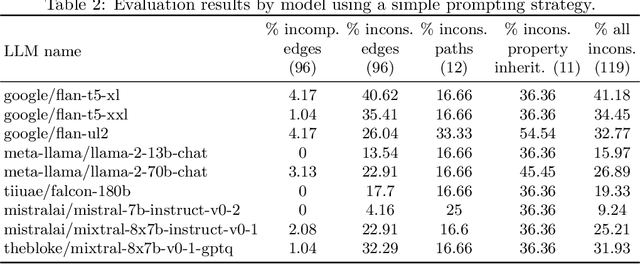Reasoning about concepts with LLMs: Inconsistencies abound
Paper and Code
May 30, 2024



The ability to summarize and organize knowledge into abstract concepts is key to learning and reasoning. Many industrial applications rely on the consistent and systematic use of concepts, especially when dealing with decision-critical knowledge. However, we demonstrate that, when methodically questioned, large language models (LLMs) often display and demonstrate significant inconsistencies in their knowledge. Computationally, the basic aspects of the conceptualization of a given domain can be represented as Is-A hierarchies in a knowledge graph (KG) or ontology, together with a few properties or axioms that enable straightforward reasoning. We show that even simple ontologies can be used to reveal conceptual inconsistencies across several LLMs. We also propose strategies that domain experts can use to evaluate and improve the coverage of key domain concepts in LLMs of various sizes. In particular, we have been able to significantly enhance the performance of LLMs of various sizes with openly available weights using simple knowledge-graph (KG) based prompting strategies.
 Add to Chrome
Add to Chrome Add to Firefox
Add to Firefox Add to Edge
Add to Edge